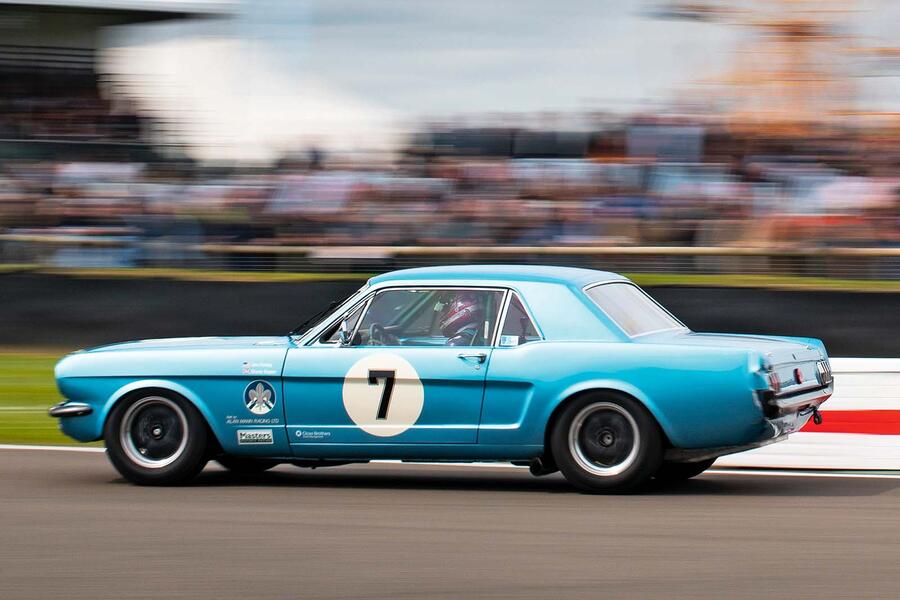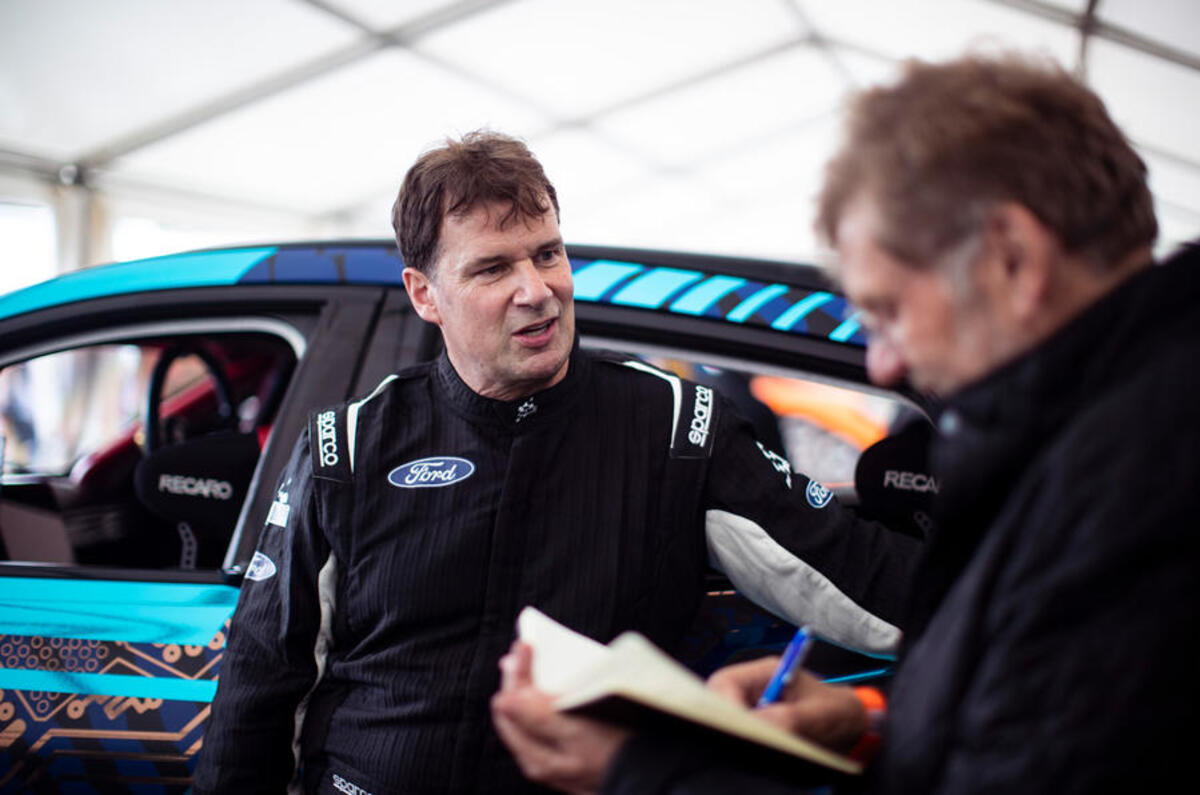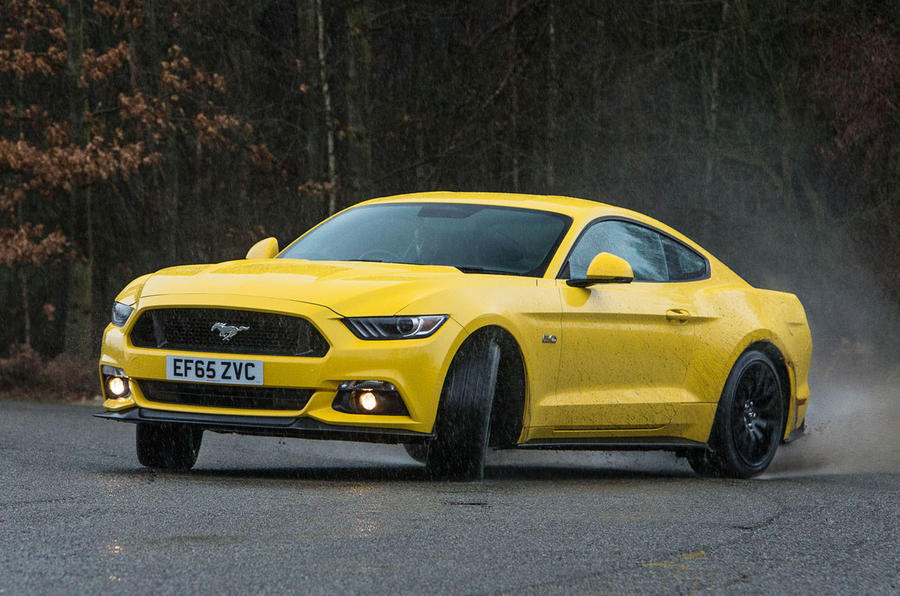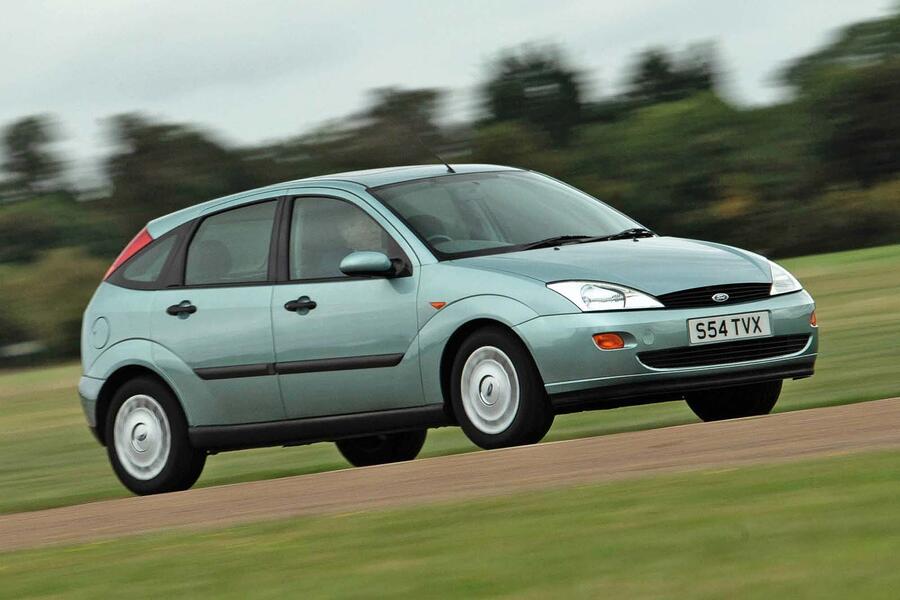Jim Farley, president and CEO of Ford, has just qualified 13th.
It’s 2pm and we’re at the 81st Goodwood Members’ Meeting, where the Ford Mustang 289 V8 that Farley is sharing with Britain’s Steve Soper, the former BTCC ace, has finished in the top half of a stellar 30-car field in qualifying for the inaugural Ken Miles Cup.
It’s a special one-make event staged to mark the 60th anniversary of the Mustang’s launch.
Farley’s lap times are a second or so behind Soper’s and he isn’t pleased, despite the fact that this is actually prodigious performance. At 62, Farley is driving an unfamiliar and very potent car on a very fast track that he has tackled only once before. And although he loves racing, Farley really doesn’t have much time for it, given that his day job is to steer a £180 billion Detroit-based company whose 177,000 employees build 4.4 million cars a year.
The following day, in a 50-minute, two-driver race, the Farley/Soper car will cross the line in 13th place in a congested and action-packed contest full of current and former greats, without a single mark on its gleaming blue bodywork, even though most of the notchback Mustangs around it have had some kind of ‘tap’. Again, it’s a creditable performance.

Today, however, sitting behind the pits in a folding chair, comfortable in his driving gear, Farley’s mind is very much on the Mustang’s commercial aspects and especially its future.
He is deeply proud of the fact that the model has been such a backbone of Ford progress (“not many things in this industry last 60 years”) and especially of the fact that a risky decision to globalise Mustang sales, made around 2015 at the start of Farley’s own two-year stint as president of Ford of Europe, has resulted in much more prominence and success for the traditionally American pony car.












Join the debate
Add your comment
Huh? If you're a rancher in a sunny part of the US, you could run your electric pick-up for free from the solar panels on the roof of your barn. If you're a rancher in a less sunny part of the US, you could run your electric pick-up for free from your solar panels on your barn and your wind turbine in a nearby field. It's so obviously a better solution. You don't even need to drive to the gas station.
If Ford didn't have an icon a halo car, are they then just another lower order car maker?, I haven't driven a Ford for about 15 years, are they any better now?, and, who wants the CEO job?, if you get things right your a hero, a great person,but, just one tiny slip and your deemed a chump, it's a no win job, this guy is only doing what he's hired to do, be seen supporting the brand, trying to say the right words to anyone who talks to him, he sounds like he cares more than most of us, yes, i hope there's alternative fuels to power ICE cars for a bit longer, EV can't do it all.